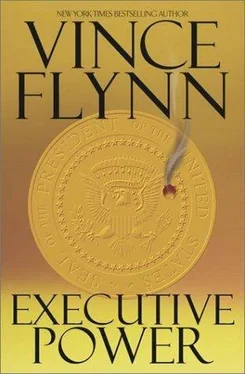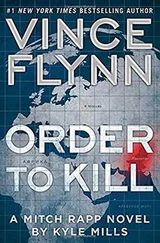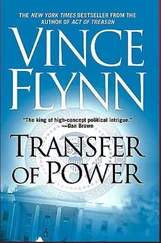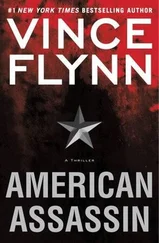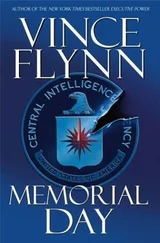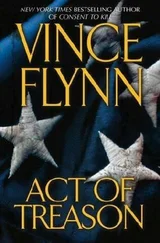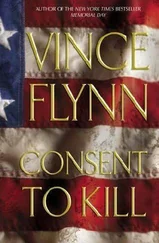It was easy to offend some people, but not Ben Freidman. Goldberg might as well have asked him what he'd had for lunch.
"I had absolutely nothing to do with All's murder."
Goldberg searched for some hint that his old friend was lying to him. After only a second or two he knew it was a worthless exercise.
He'd seen the man on too many occasions lie with the same impunity as he told the truth.
"Did Mossad have anything to do with the Ambassador's death?"
Freidman shook his head.
"I might be crazy, David, but I am not stupid. Why would I be so dumb as to kill the Palestinian Ambassador to the UN while he is in America?" He frowned dismissively.
"I do not mourn Ali's death. He was a two-bit thug dressed up as a diplomat.
He's in Ramallah almost every month. If I wanted him dead there would be easier ways to do it, with far fewer repercussions."
These words had the opposite effect on Goldberg than he had intended.
Through Freidman's defense the prime minister glimpsed the very reason why he might have thought he could get away with killing the Ambassador. Sound-minded people would eventually decide that the director general of Mossad would never risk offending the Americans when he could simply kill the Ambassador when he was visiting the West Bank. Now Goldberg was truly worried. What if one of his closest advisors was working behind the scenes to provoke an all-out war?
Freidman could tell that Goldberg was not buying his denial. In a more ingratiating tone, he said, "I promise you, David, I had nothing to do with this. I have already spoken to Director Kennedy and she believes Ali's assassination may have something to do with a business deal gone bad." Freidman was stretching the truth a bit, but felt it was needed.
Goldberg gave him a skeptical look.
"What kind of business deal?"
"Ali has been known to deal in arms from time to time."
"Weapons?"
"Yes." Freidman was happy to see this seemed to give the prime minister some hope.
"And you say the Americans knew about these activities?"
"Yes, as do the French, British, Germans, Russians and I'm sure quite a few other intelligence agencies."
"I would like to see Ali's file as soon as possible and give the Americans everything we have on him."
"It's already in process."
Goldberg felt a little bit better, but he still had the Hebron disaster to contend with.
"Assuming we are fortunate enough to be cleared of any wrongdoing in Ali's death, it will still be too late to help us with the Hebron thing. With the current political mood the UN is sure to vote for inspectors by today or tomorrow."
"Have the United States stall."
"They won't. Not right now."
"Then just deny the inspectors access."
Goldberg had already thought it through and discussed it with his closest political advisors. Dejectedly he replied, "I can't. It would be political suicide. My cabinet would fall apart, and I'd get a no-confidence vote within twenty-four hours."
Freidman knew he was right, but wasn't willing to give in so easily.
The two men sat in silence, both of them trying to find a way out of this complicated mess. Freidman had come up with only one option when his thoughts were interrupted by a muffled rumble coming from outside the building. Both he and the prime minister got to their feet and went to the window, just as another explosion was heard in the distance. Unfortunately, this was a noise that they had become all too familiar with.
Within minutes, reports were streaming into the prime minister's office. Three suicide bombs had gone off within minutes of each other.
Two in West Jerusalem and one in Tel Aviv. The damage and death toll was unknown, but expected to be high. Emergency response teams were at each site and searching frantically to make sure no other bombs were set to explode. It was a new and particularly evil trick of the martyr brigades to set secondary devices to detonate later and kill the paramedics who rushed to the scene to help the victims.
Freidman grabbed Goldberg by the elbow and led him into a corner out of earshot from his aides.
"This is your opportunity."
"How could this be an opportunity?"
"Send in the army and declare a curfew on Hebron. Secure the area and leave the rest up to me. By the time the UN inspectors arrive there will be ample evidence of a bomb-making factory. You will stifle the critics in your cabinet and the UN will be appeased."
Goldberg thought about it for a second, then slowly began to nod.
It was his only option. It was war, and in war the truth was almost always the first casualty.
The rest of the meeting at the White House was dominated by what would happen at the UN. They all agreed that Israel was about to be strung up and that for the first time the United States might not be able to stem the backlash. Valerie Jones gave everyone a stern warning about the press. No one was to give any interviews without checking with her first. The last thing they needed right now was individual cabinet members and administration officials contradicting each other. Storms like these could be weathered, but only if everyone hung together. They could not afford to have the Hayes administration look as if it were in disarray.
When the President ended the meeting by standing, Kennedy caught Jones's eye and held up five fingers. The President's chief of staff nodded and looked down at her appointment book. The President's day was already running behind, but Jones was more than up to the task of juggling meetings and canceling or shortening events. Kennedy didn't ask often and considering the events of last night her request was undoubtedly important.
Jones looked over at her boss, who was talking to Secretary of State Berg. They were standing under a portrait of Theodore Roosevelt. The chief of staff returned her attention to Kennedy and said, "Wait in the Oval and I'll bring him in as soon as I can tear him away."
Kennedy thanked her and then left the Cabinet Room with Rapp and Turbes. As the three of them entered the Oval Office, Rapp said, "He already has his mind made up on this thing."
"Yeah, I know."
"He's not going to like what we have to say," added Rapp.
"No, he won't."
Before the three of them had a chance to settle in, the President entered the office, with Jones and his personal Secretary. The President went straight to his desk and deposited a leather folder. His personal Secretary began reciting a list of things that needed his attention while Jones stood off to one side looking through a stack of pink message slips that one of her people had just handed her. She froze on one and then looked up to the President.
"The Saudi Ambassador wants to see you as soon as possible."
Kennedy suddenly became very interested in what the President had to say to his chief of staff. She took several steps forward and listened.
Hayes had a very warm relationship with the Saudis. Almost without thought he replied, "Set it up."
"Sir, if I may." Kennedy stepped even closer. Looking to the President's Secretary the DCI said, "Betty, would you please excuse us. "The Secretary honored Kennedy's request without hesitation. Once she was gone and the soundproof door was closed, Kennedy said, "Sir, there have been some developments that I think you need to know about before you schedule that meeting with the Ambassador."
Hayes raised a suspicious eyebrow.
"Such as?"
Kennedy gestured toward the two couches by the fireplace.
"I think we should sit. This might take some time."
Hayes paused for a moment as he looked down at the workload on his desk but then agreed. Kennedy and Turbes sat on one couch while Jones and the President took the other one. Rapp chose to stand rather than sit.
Читать дальше
